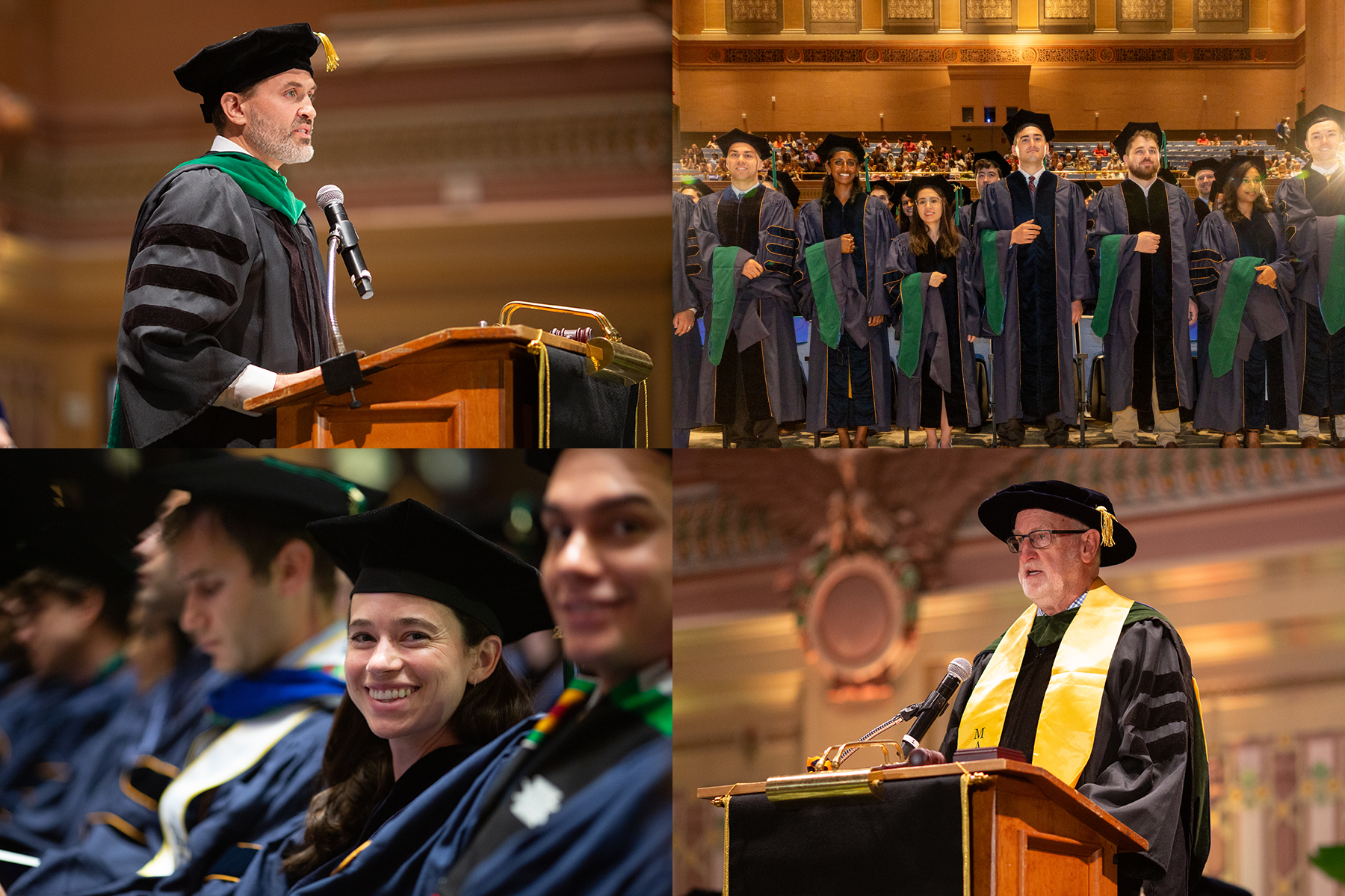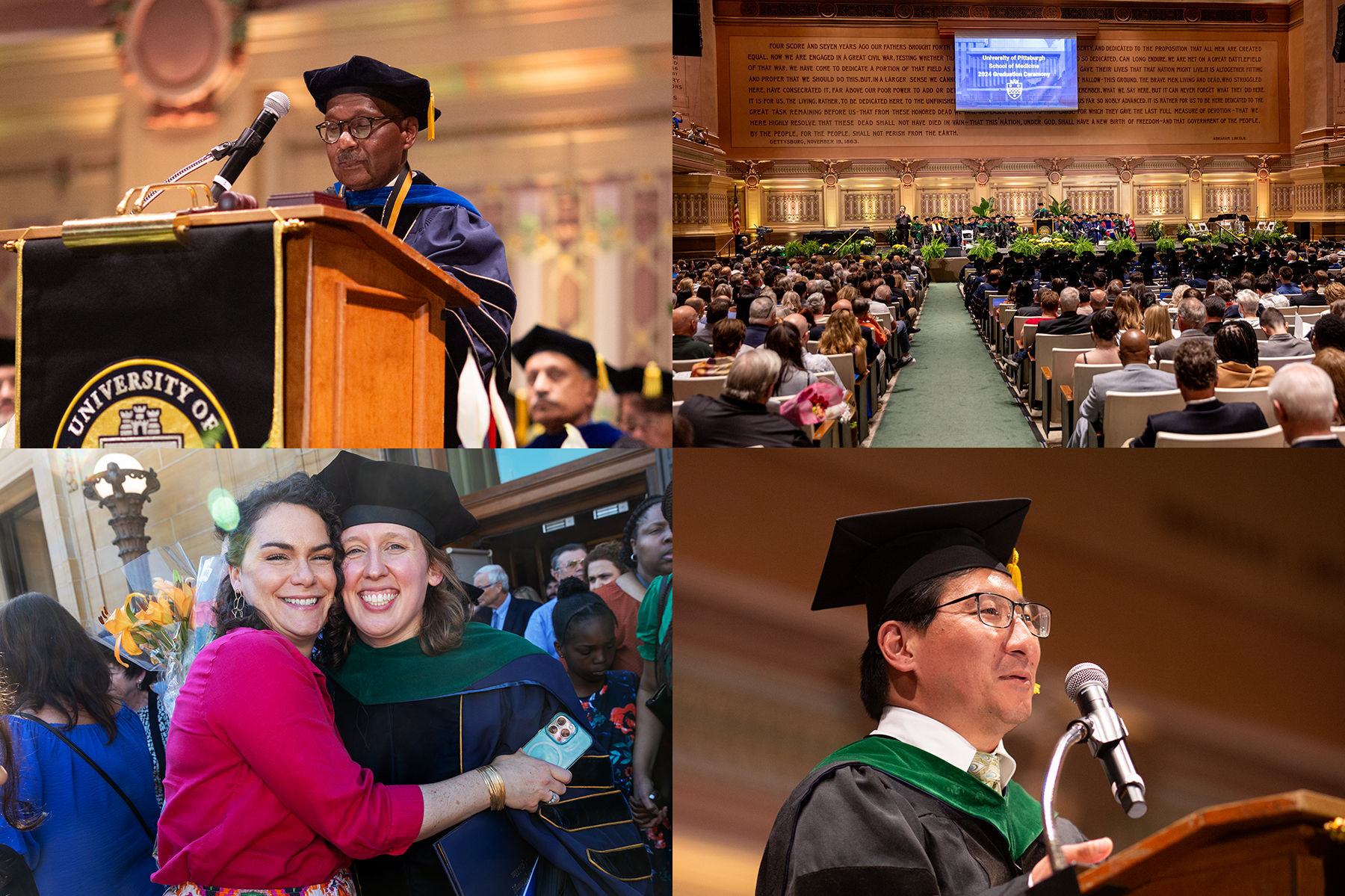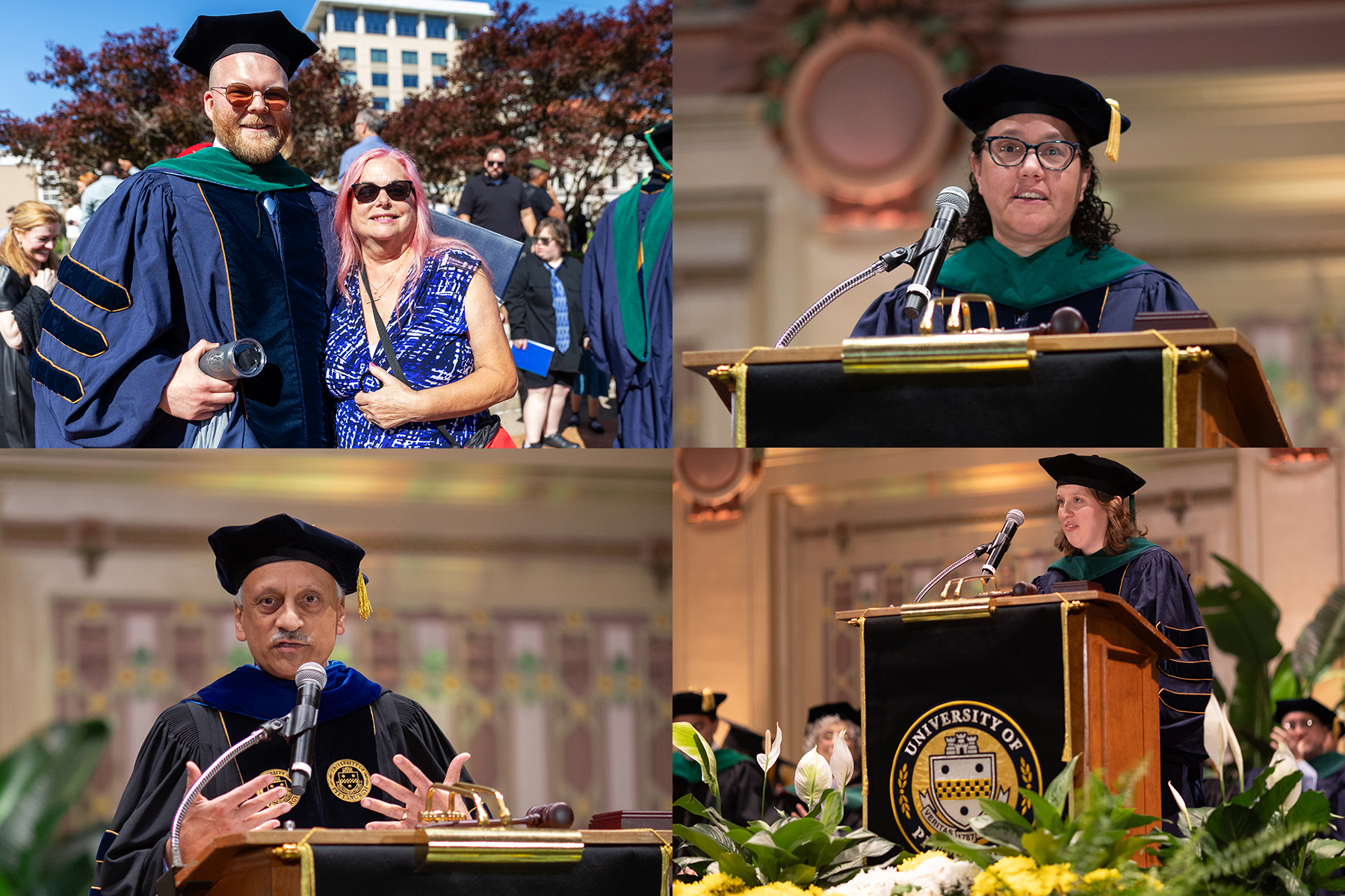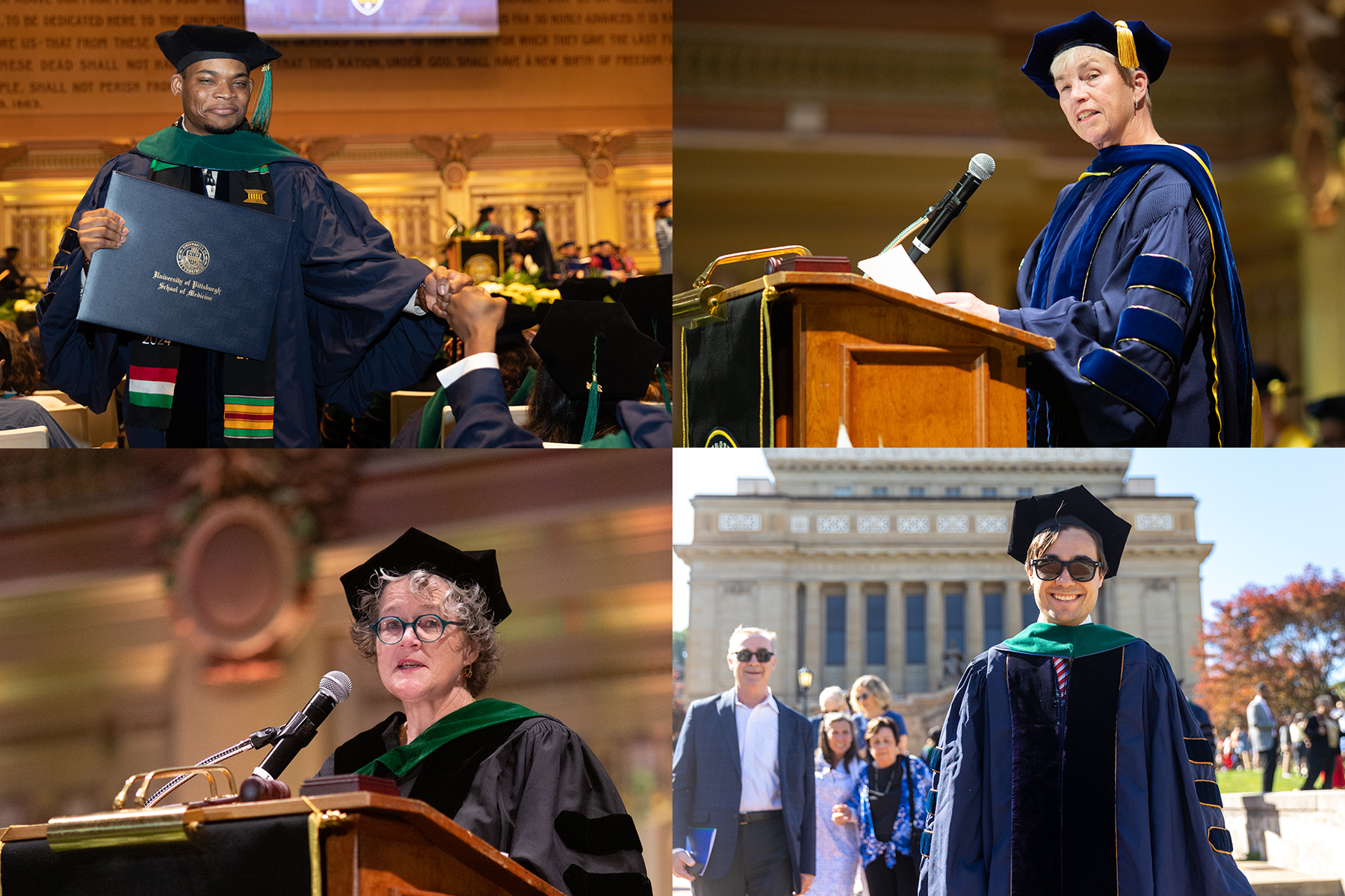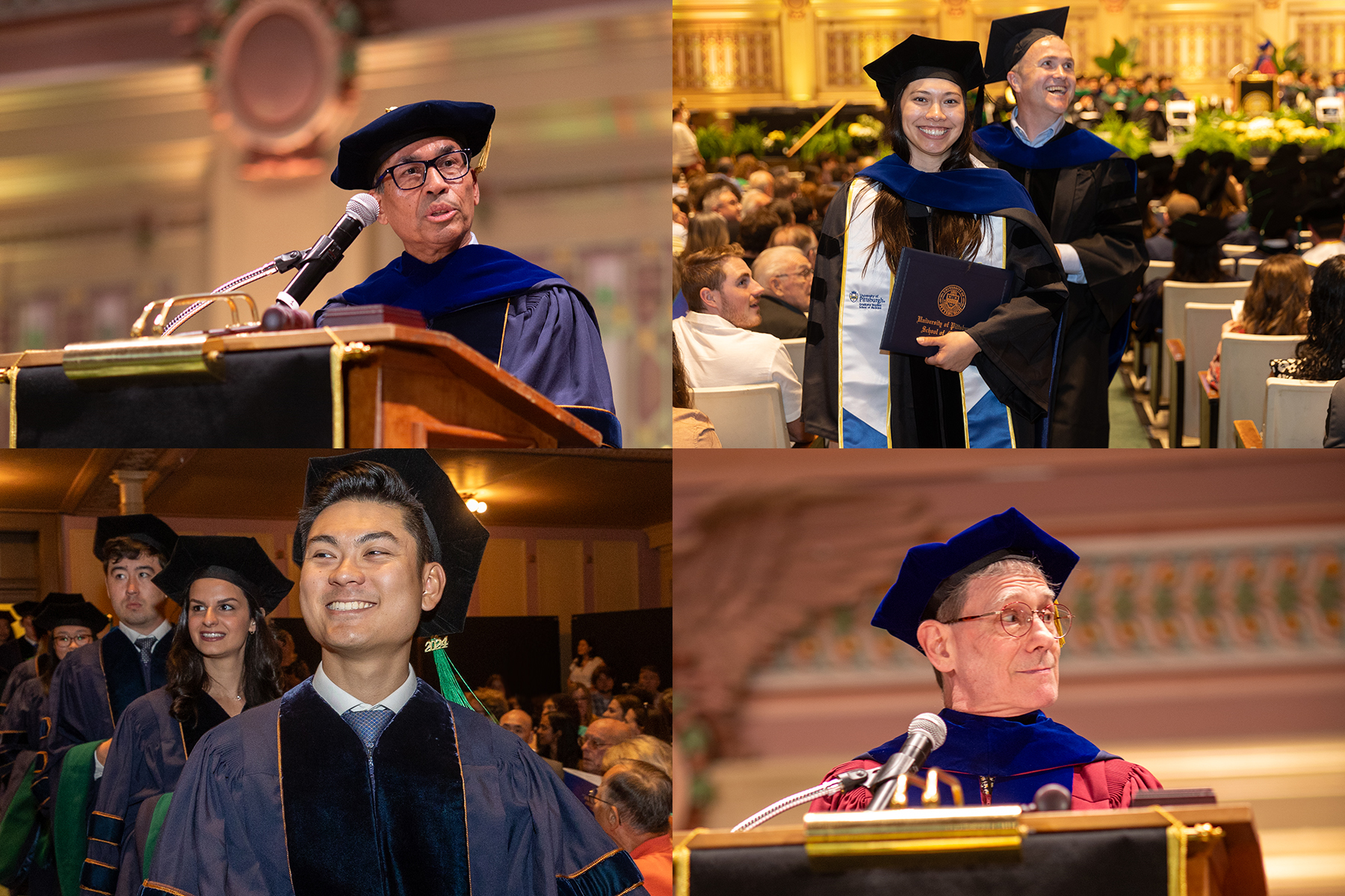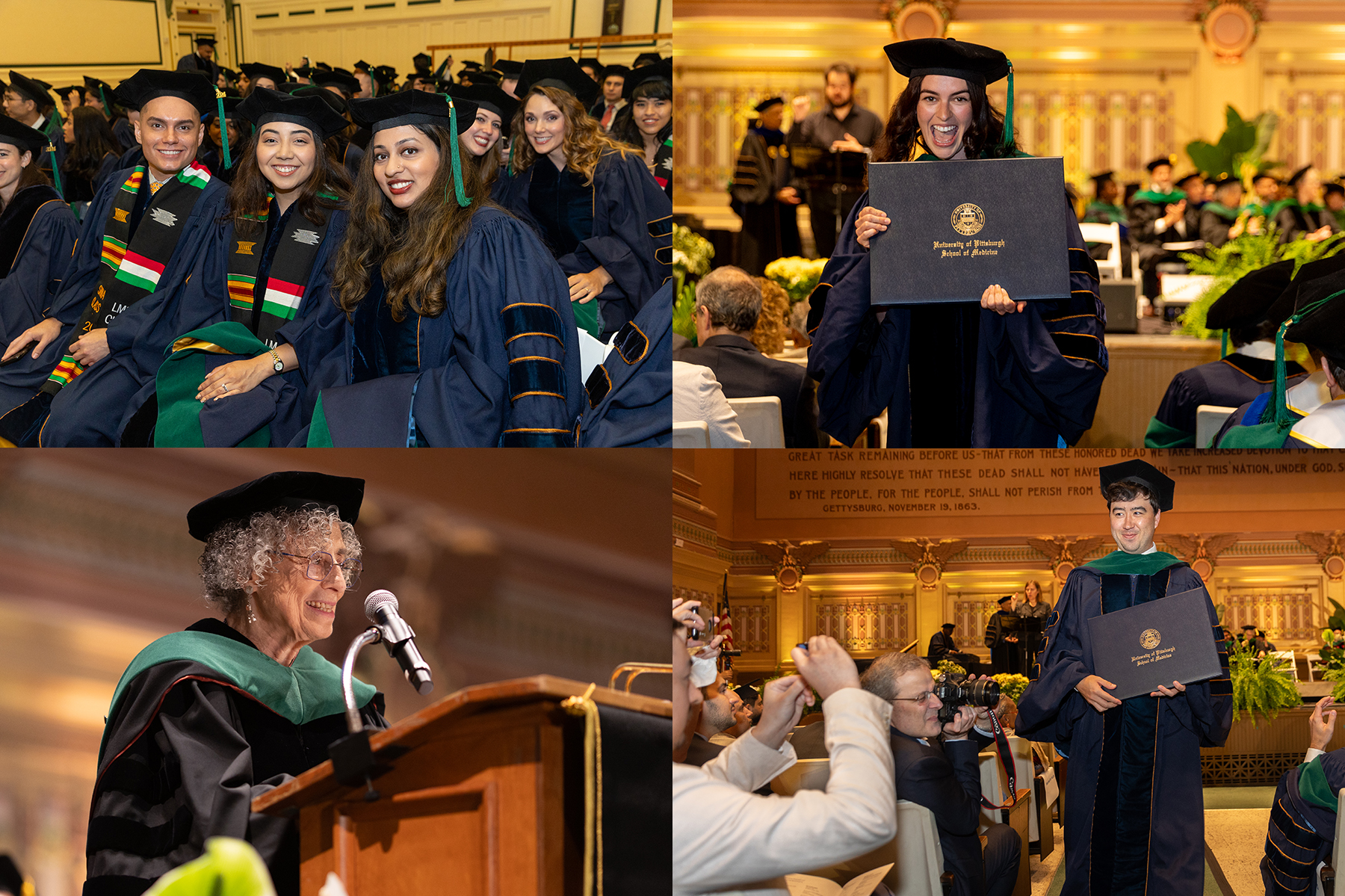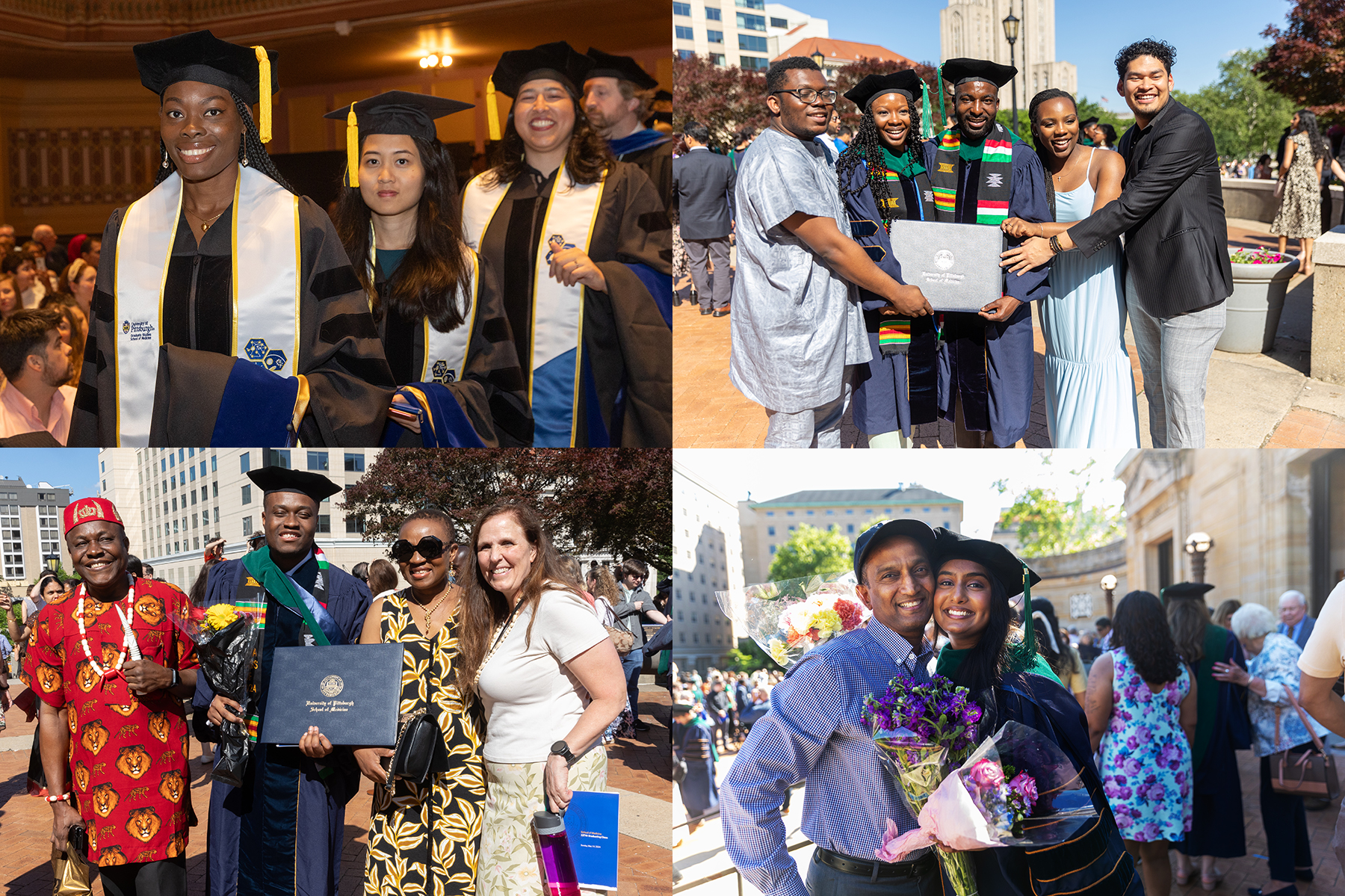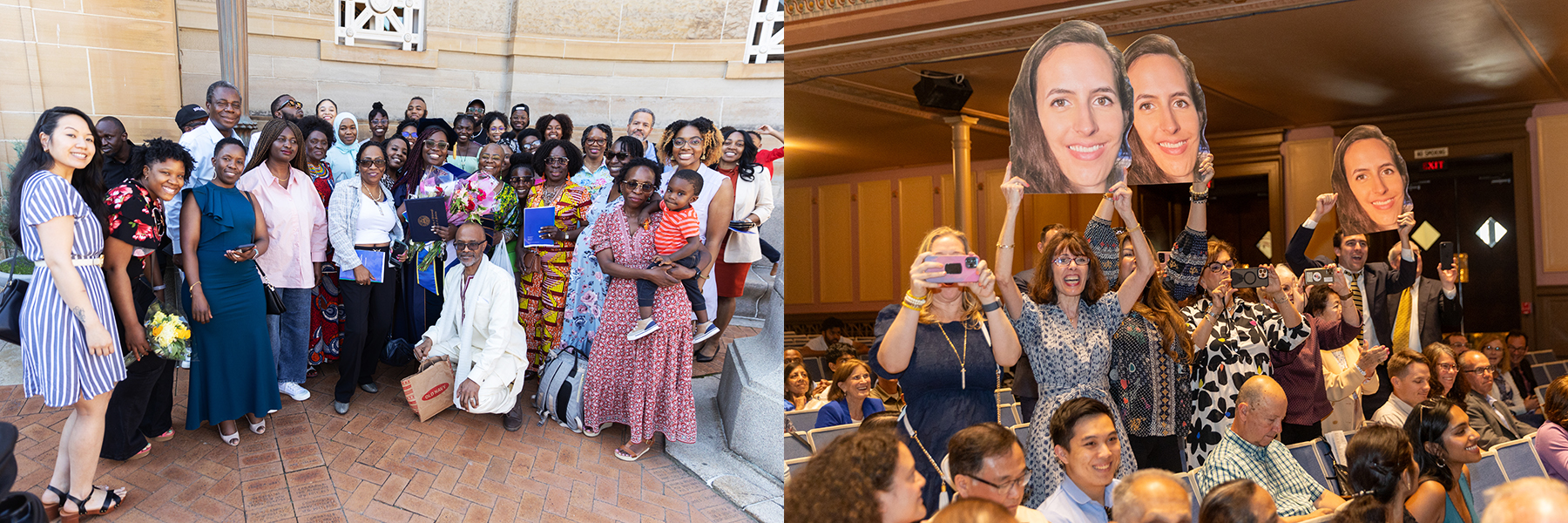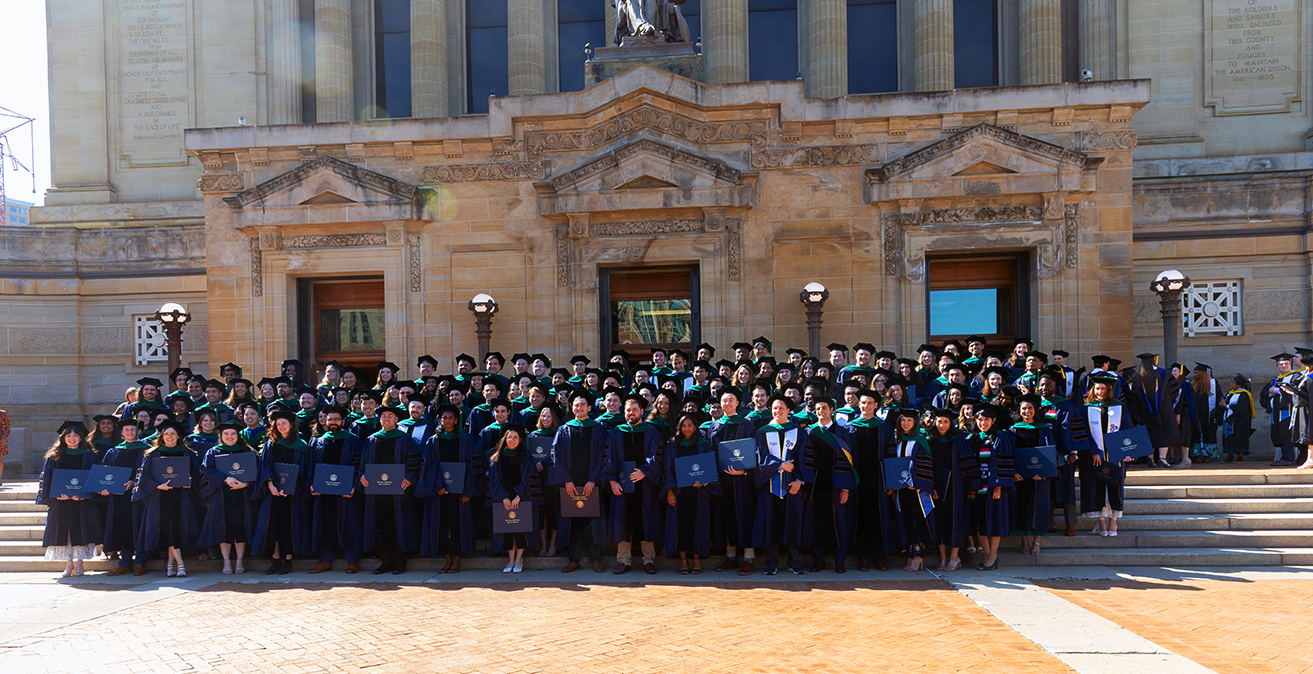
137th graduating class of the University of Pittsburgh School of Medicine
“When the start of your graduate or medical school career coincides with that of a deadly pandemic, and you make it to the other side able to articulate such hope and clarity, there's only one word to describe you, and that is ‘awesome,’” Jeanne Marrazzo, director of the National Institute of Allergy and Infectious Diseases, told School of Medicine graduates in her keynote address at the commencement ceremony May 19. (Watch the ceremony on YouTube.)
“So many of us in the health care field are still trying to make peace with the pandemic’s legacy,” she continued. “We mourn the lost lives. We mourn the lost opportunities, even as we draw inspiration from our community’s resilience, collegiality and care. It will take us all some time to process our individual COVID experience. Regardless, you deserve a huge round of appreciation and credit and more for making it through intact and shining. Your experiences, your skills and the empathy that you've acquired amid the pandemic will serve you well for your entire careers.”
She was speaking at Diploma Day at Soldiers and Sailors Memorial Hall to the members of the 137th graduating class of the University of Pittsburgh School of Medicine and their enthusiastic guests. Sixty-one students received master’s degrees, 69 students earned PhDs and 126 received MDs. There were four MD students in the physician scientist training program (PSTP) and 12 in the medical scientist training program (MSTP, earning both MDs and PhDs).
Earlier in the ceremony, Chenits Pettigrew, associate dean for diversity, equity and inclusion; assistant dean for student affairs and assistant dean for faculty diversity, School of Medicine, explained that the MD students, who began their medical education in 2020 in the shutdown phase of the COVID-19 pandemic and during racial justice demonstrations, had created their own Oath of Professionalism. He introduced a video in which several students on the oath-writing committee discussed what it meant to them. (Watch the video about the Oath.)
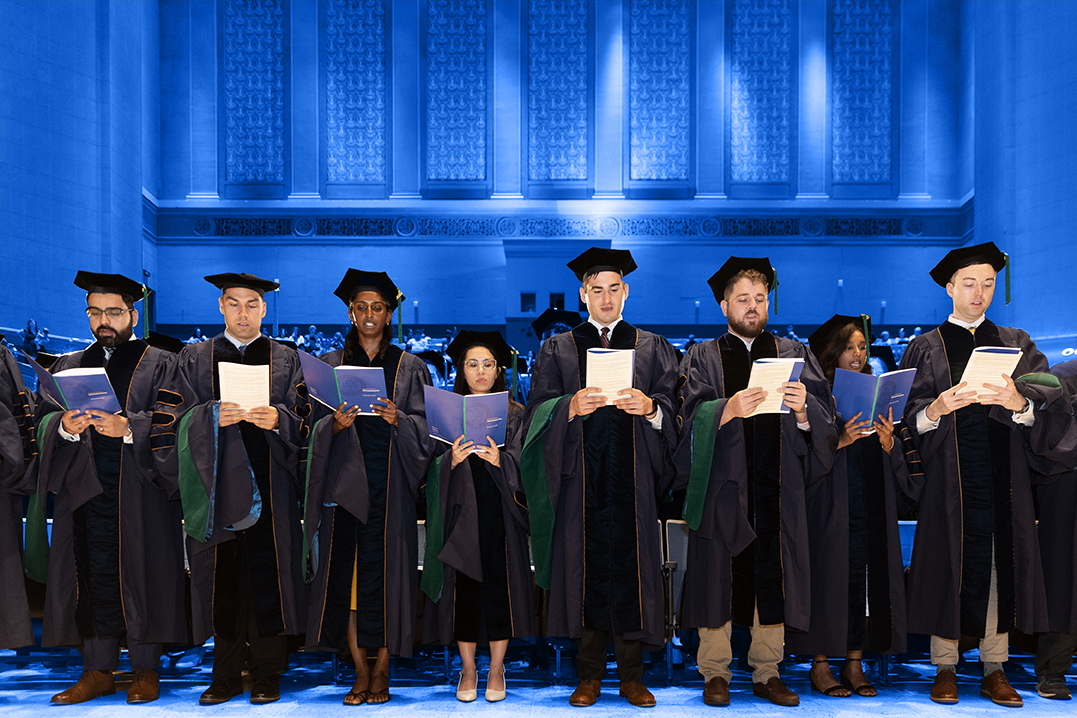
Students reciting the Declaration of Geneva
“Your oath shines with a passion to make our patients, our communities and our colleagues better, from bench to bedside and across the globe,” Marrazzo said in her address.
“By better, I mean more whole, more fulfilled and healthier. What a gift this is to the profession you are entering, and to the people whose lives you will touch.
“I appreciate that in your oath, you are also explicit in your commitment to support each other. As an oft-cited proverb states, ‘If you want to go fast, go alone. If you want to go far, go together.’ Your career will be a marathon, not a sprint. Caring for your colleagues, being attentive to their mental health, listening as nonjudgmentally as possible, celebrating their successes and being with them in their trials, that will make all the difference. Be a good friend and colleague and take time for self-care.”
She continued, “So much of your oath signals your openness to really listening to patients, to incorporating their narratives into your understanding of where they are in their lives, and to finding ways to deliver the best evidence-based care to everyone, whatever their circumstances may be.
“Please know that however you encounter patients in the emergency room, in the clinic, in the research setting, in the anesthesia suite, in the OR, in industry, you can have a profound impact by signaling your openness and acceptance of the lived experience that everyone brings to those encounters. Remember, we are all patients, or we will be at some point, and all of us need and deserve to really be seen.”
She spoke about her work fighting HIV and other infectious diseases and concluded her remarks with a quote from Frederick Buechner’s book, “Wishful Thinking.”
“The place God calls you to is the place where your deep gladness and the world's deep hunger meet.”
Marrazzo said, “Whatever your concept of God or of spirit, I fervently hope you find this place or places in your lifetime.”
(Read more about Marrazzo in an interview with Pitt Med magazine.)
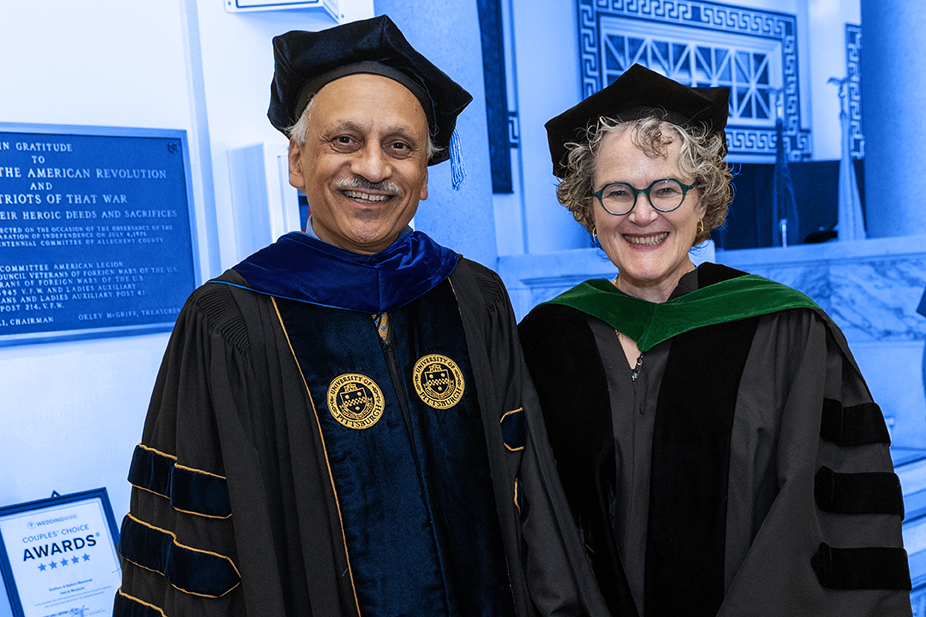
Dr. Shekhar (left) and Dr. Marrazzo (right)
Anantha Shekhar, senior vice chancellor for the health sciences and John and Gertrude Petersen Dean, School of Medicine, gave the salutation, recalling how he and the students arrived at Pitt when COVID-19 raged across the world. He cited the speed with which the COVID vaccines were produced, crediting the “top-of-the line innovation and support of the National Institutes of Health,” which has “traditionally supported extraordinary research all over the country, but also at Pitt.”
He went on: “On the darker side, we also saw COVID completely expose all of the inequities and disparities that are also underlying all of our health care and our society in general. It was also a time of great social awakening, and that’s what inspired all of you to make the class oath that you committed to.”
He said the students were not only “resilient and creative in the survival of COVID and coming up with this extraordinary manifesto, but you also faced head-on the question of health disparities and social justice and we are eternally thankful for your vision and pushing us to do more than we traditionally did.
“One of the key components of being a great medical innovator and physician is the sense of humility, and I would add to that, humility and compassion will take you very far and make you successful in whatever field you choose in whatever part of the world you end up serving and whatever community you are part of.
“You will end up leading that community, leading the cause that you're working on, and leading the field that you're working in, if you have both humility and compassion.”
Saleem Khan, associate dean for graduate studies and academic affairs and professor of microbiology and molecular genetics, School of Medicine, told the master’s and PhD students, “You are now prepared to make your mark as scientific innovators and make new discoveries. We need you to advance research on major public health issues such as infectious diseases, cardiovascular diseases, cancer, diabetes, Alzheimer's disease, and countless others. In recent years, as we all know, the importance and validity of science and scientific methods has been challenged. You will be in a position to advance the cause of science by helping to earn public trust and support for biomedical research. You are now ready to move forward, explore new ideas and make your mark in the world.”
Alda Maria Gonzaga, associate dean for student affairs and professor of medicine and of pediatrics, School of Medicine, shared some advice with the MD students before their hooding and awarding of diplomas.
“Residency training is truly a humbling experience during which you will feel like you're learning a whole new body of knowledge. And when you feel that humility, remember, you belong here in medicine. You belong in the fields that you've chosen, and don't let anyone ever make you believe otherwise.”
She continued, “Never forget that you are learning from your patients because of their suffering. I ask that you be fully present as you care for them during some of the worst moments of their lives. Honor them in that moment. Pull up a chair and sit with them for a few minutes. Listen to their stories, their concerns, translate the medical jargon that's been thrown at them. Our patients and their families remember how we, their physicians, treat them.”
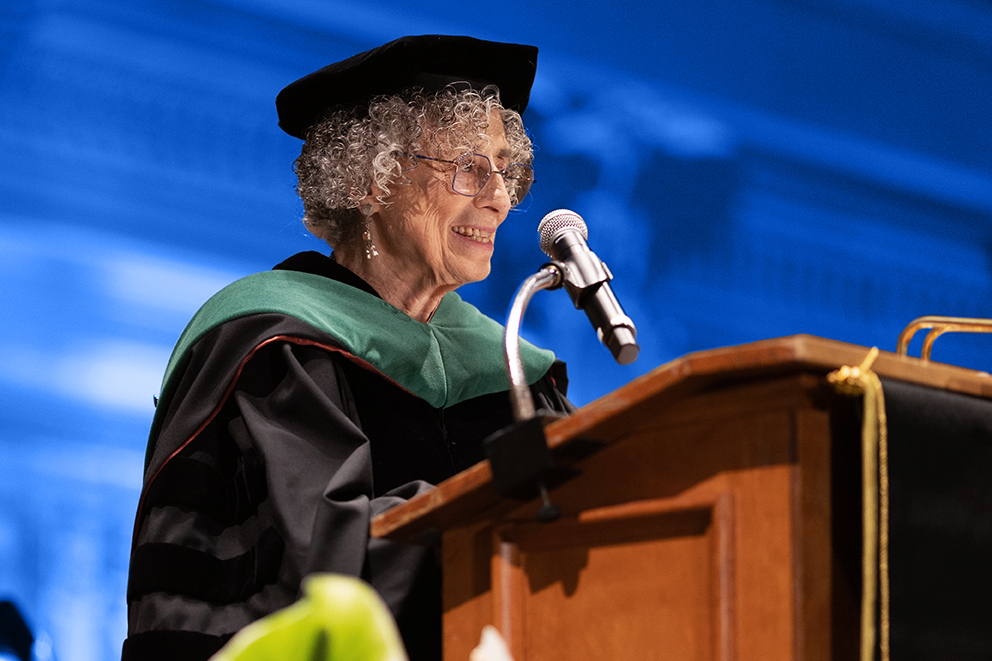
Dr. Thompson
In the medical faculty address, Ann E. Thompson, vice dean emerita and Distinguished Service Professor Emerita of Critical Care Medicine, said, “As most of you know, I'm almost retired, ending my medical career just as you begin yours. Your commencement represents what I believe to be the beginning of a chance to do some of the best work in the world. No doubt you've had moments when you wonder why in the world you thought medicine was a good idea. But on balance, I hope you know that we are among the most fortunate people in the world. We have the opportunity to do work that is profoundly meaningful, valuable, fulfilling and good.”
She said that, in her years as the division chief of pediatric critical care at UPMC Children's Hospital of Pittsburgh, she learned that “hearing our patients’ stories teaches us about what is important to them, how they make decisions, what previous experiences influenced their thinking.
“When we listen, we establish ourselves as interested in them beyond their diagnosis. When decisions need to be made, we know how to make recommendations that make sense to them. We are better able to make a difference in their experience of illness or injury, sometimes even between life and death. We can earn their trust that we will handle their bodies, their feelings—indeed, their lives—well.”
She concluded, “Regardless of the field you've chosen, the science of medicine has become more and more interesting. The opportunity to intervene successfully is so much greater. And the chance to share patients’ and families’ hopes, fears, joy or sorrow is such a privilege. I cannot imagine better work.”
Photo Credit: John Altdorfer

